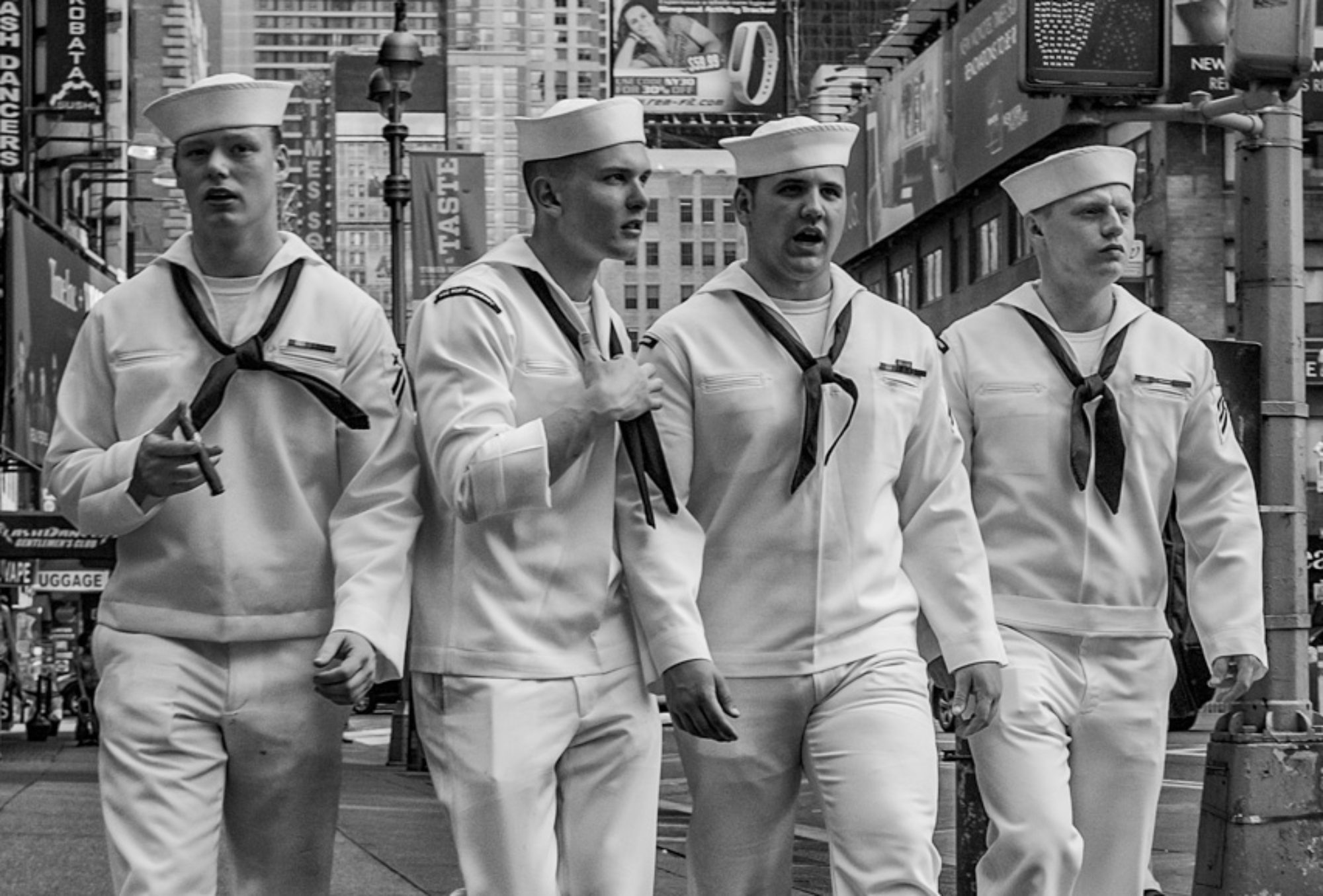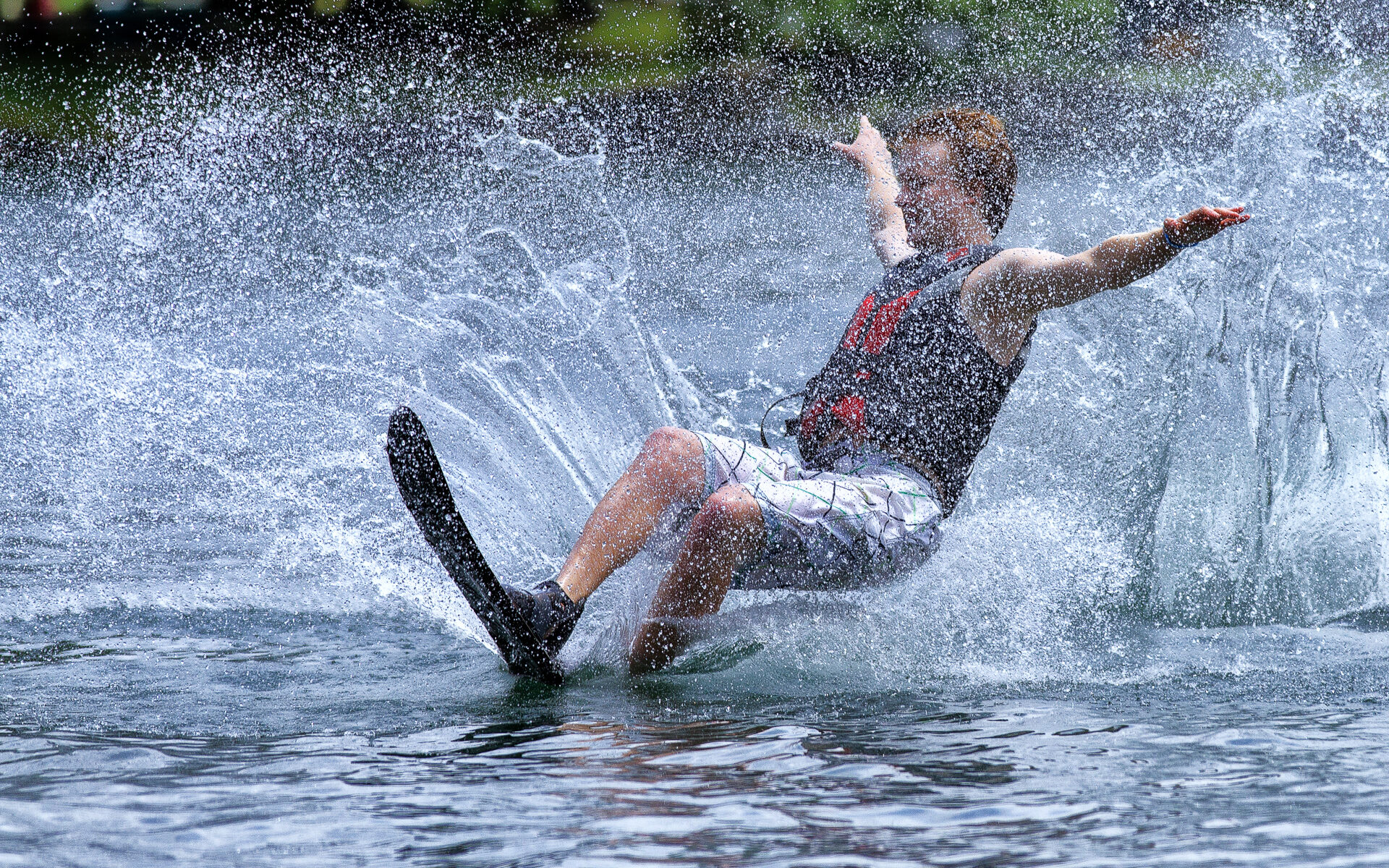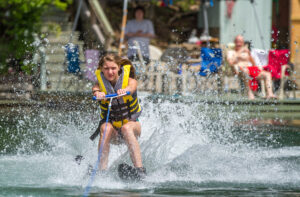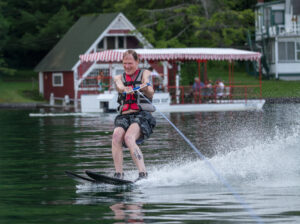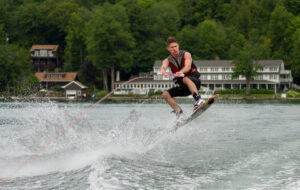Each year, we take a family trip to a lake in the Catskill Mountains (New York) to stay with my wife’s cousin. Aside from the great family get together that it always is, I have been taking my camera along to shoot during the innumerable boat rides with tubes, water skis and wake boards. When the weather is nice, this is a non-stop event.
I have been working over the years on how to capture the action – and the variables are many. Light can change constantly between clouds moving and shadows from the hills. The boat is bouncing and the subjects can be whipping across the back of the boat – or popping up and down depending on the particular activity. Putting the technique aside of capturing a skier jumping a wave at 20 MPH with a 300mm lens while you are trying to brace yourself on a bouncing boat, what I tried to bring into the exercise this year was capturing context with the shots.
So what is this context thing? I am not a professional sports photographer – and I am pretty sure the kids and folks on the skis and tubes are not going to find themselves posing for X-games photo shoots. I wanted to figure out how to take shots that stand on their own as action photos – but also are recognizable to anyone who knows – this is the lake or more specifically, this is the house.
This should not be rocket science, and to be frank, is really a basic principle in photography (or art in general). However, I noticed that when I was shooting “sports” like shots where I was keenly focused on trying to capture the action, I had stopped paying attention to this aspect of capturing an image. So I really just made the mental note to focus on this as an exercise to help myself reinforce this for next time.
The lake house has lot of history and has been in the family since the 1920’s. I thought about previous years where pictures of folks on a tube or ski might be a great capture – but there is nothing about them that says it was shot at this lake. So, I decided that rather than simply try to capture an action moment, I would work to time shots so that they had some context – something that ties the shot to this lake – not just any body of water. There is an old classic inn that sits lakeside, there is a small resort that has a classic pontoon boat that they use for sunset cruises – and of course, there is the dock and house itself. Also, when someone is on a kayak or other watercraft, they too can provide a background with context if something is shot in front. Anyone who knows this lake will instantaneously recognize these backgrounds. Why not at least try to capture them rather than random shots? If you find yourself on a boat making dozens of trips around the lake like I did, you should have ample time to get to know the trip and when backgrounds will come into play so you can have your camera ready.
This extra level of attention to background creates an opportunity for not just the great shots you might already be taking, but will also give the images a tie-in to anyone who may be familiar with the setting. Of course, in an ideal world, your shots need to stands on their own. However, if you are taking these images at a special place and want to share them, having a some context in the shots will really make your albums memorable.
The shot at the top of this post is of my daughter – with the dock in the background. Here is a shot of a wake board jump – with the well known Inn as a backdrop.
And this is a shot of a family friend water skiing (a guy who and has been at this lake for 50 or more years) timed to show the evening cocktail cruise boat in the background that any lake regular has seen every night they have been on the lake for that same time.
Do these shots stand on their own? Do you think it means even more to those who do? A great shot is always a great shot – but throw in a bit of context and you really have a winner. Again, this is kind of obvious in hindsight, but a worthwhile thought to keep in mind when you are taking these action shots.
